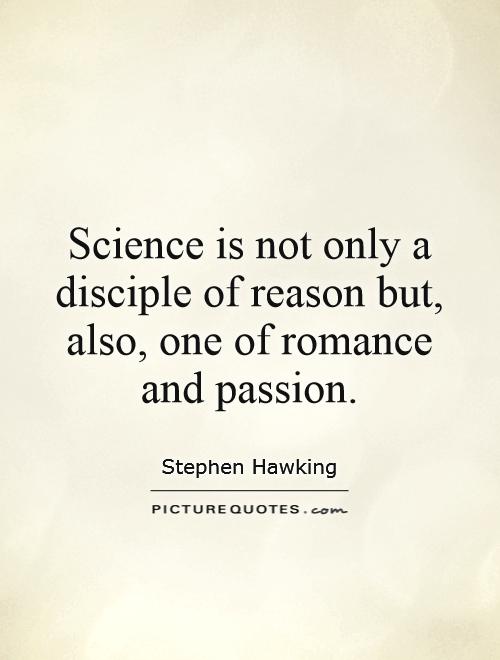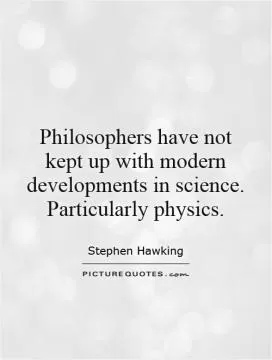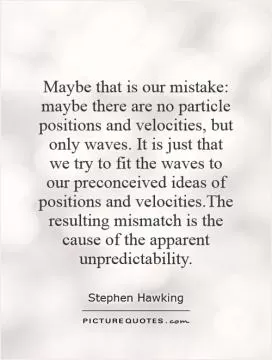Science is not only a disciple of reason but, also, one of romance and passion

Science is not only a disciple of reason but, also, one of romance and passion
Stephen Hawking, the renowned theoretical physicist and cosmologist, exemplifies the idea that science is not only a discipline of reason but also one of romance and passion. Throughout his career, Hawking demonstrated an unwavering dedication to understanding the mysteries of the universe, driven by a deep sense of curiosity and wonder.Hawking's groundbreaking work in the field of theoretical physics, particularly his research on black holes and the nature of the cosmos, was fueled by a passion for unraveling the secrets of the universe. Despite facing immense physical challenges due to his battle with ALS, Hawking never wavered in his pursuit of knowledge and understanding. His determination and perseverance in the face of adversity serve as a testament to the passion and romance that can be found in the pursuit of scientific discovery.
Hawking's famous book, "A Brief History of Time," is a testament to his ability to communicate complex scientific concepts in a way that captivates and inspires readers. Through his writing, Hawking was able to convey the beauty and wonder of the universe, inviting readers to share in his passion for exploring the unknown. His ability to make science accessible and engaging to a wide audience speaks to the romantic and passionate nature of his work.












 Friendship Quotes
Friendship Quotes Love Quotes
Love Quotes Life Quotes
Life Quotes Funny Quotes
Funny Quotes Motivational Quotes
Motivational Quotes Inspirational Quotes
Inspirational Quotes